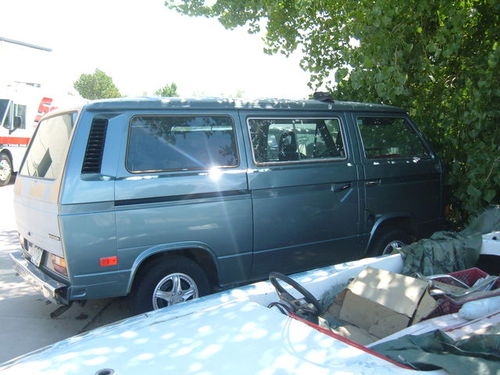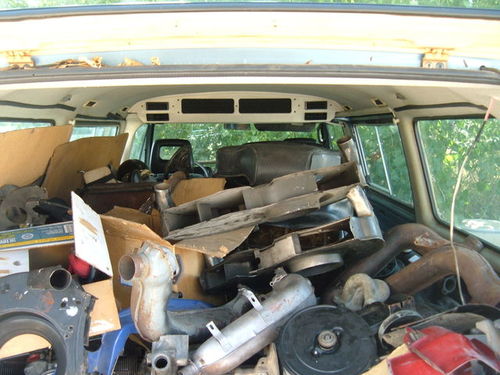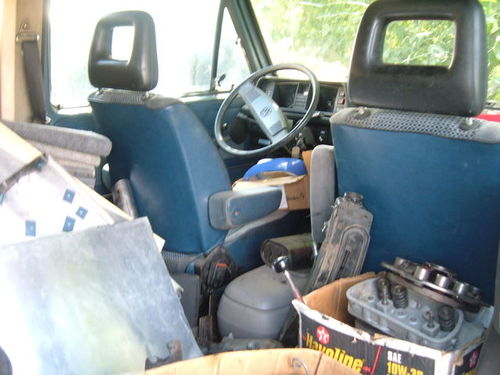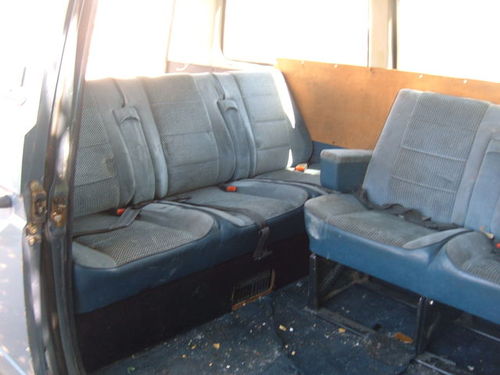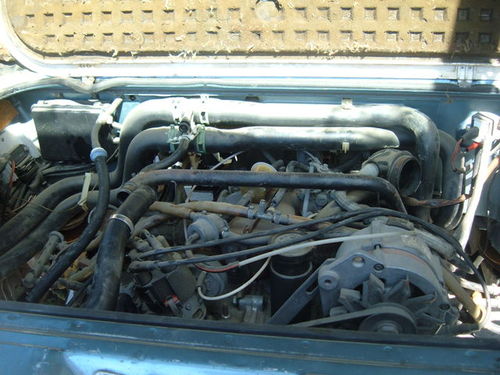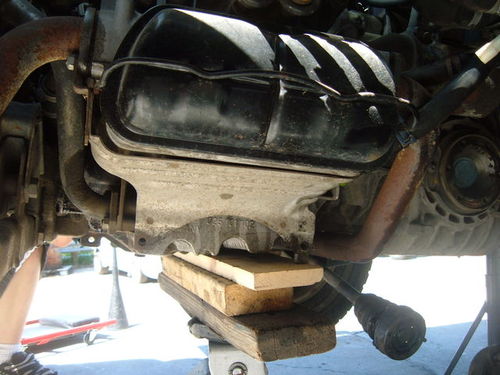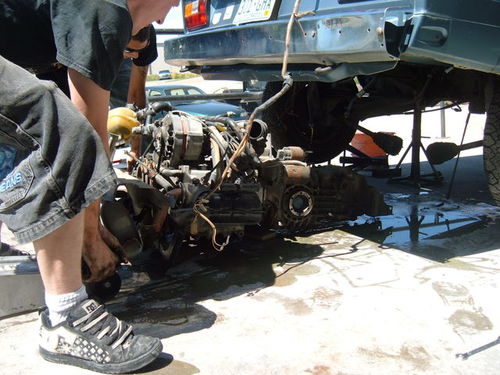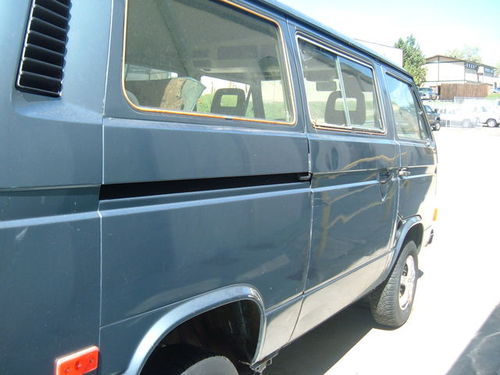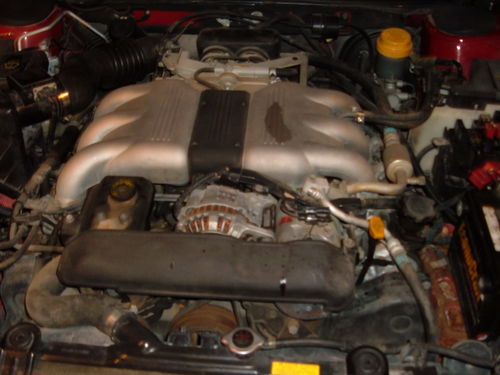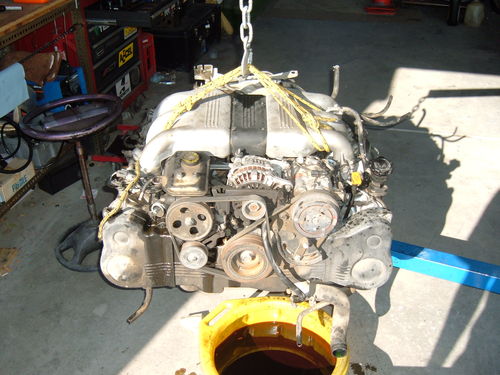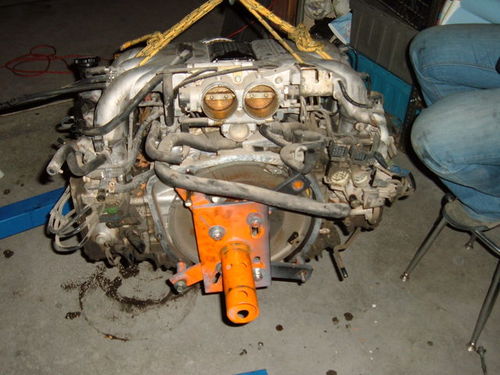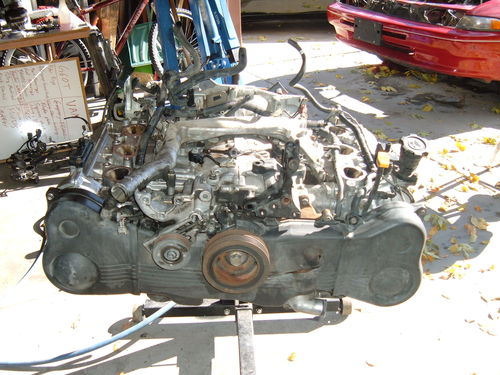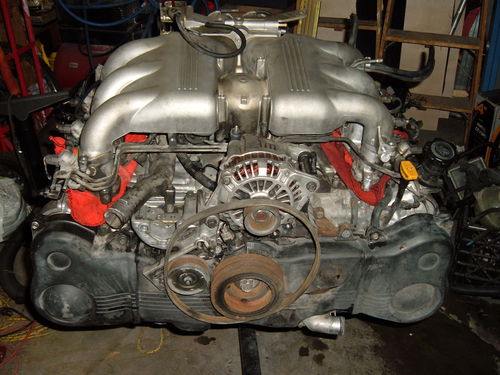Last updated 1/28/2017 Mileage Since Swap: 43,233 Status: Under restoration, being converted into campmobile.
Scroll down past the recent posts for the beginning story.
Completed Van Photos:
Latest Posts about Albert the Vanagon:

Igloo 12V electric cooler arduino modification for the van
News for Wednesday, August 18th 2010
News and Blog for Wednesday, July 28th 2010
News and Blog for Monday, July 19th 2010
Some YouTube Videos:
My van just after the swap was completed, with open exhaust!
11/4/2015:
3/23/2011 UPDATE:Well I have managed almost 23mpg out of changing driving habits alone with this engine. Shifting at 2500 – 3000 rpm has helped so much, one thing that you gotta get used to is the fact that there’s really a large amount of torque on tap to pull you around corners and up small hills in higher gears. For example instead of using 2nd to go around corners I now use 3rd gear. I have owned 4 cylinder cars throughout most of my driving life so in a way I guess you could say I need to get out of that mentality. (and you should too if you have a 6cyl vanagon)Staying around the 75mph speed limit on the highway has helped achieve this as well. The JDM engine is still installed and has over 10,000 miles since it was swapped in. Oil usage has dropped considerably since it was first installed, down now to around 2quarts every 500 milies with nasty driving habits.I am back and forth on rebuilding this swap or obtaining a new engine altogether thats newer with more commonly available parts, either engine installation results in a turbocharger and 300hp, this will be looked into once the Corrado is finished up.
08/08/2010 UPDATE:I was able to get a better representation of the fuel economy. I actually average between 20 and 21MPG. I get about 230 miles from a full tank to the “red mark” at the very bottom. Once the needle just barely starts to touch the red I stop and fill up. I am able to squeeze 10.5 gallons of gas into the tank from the red mark to full. 230 / 10.5 = 21.904 so almost 22mpg. Depending on my driving I will get between 200 and 230 to the 10.5 gallons of fuel. So even at it’s worst I am seeing 18-19mpg, I originally grossly miscalculated this just assuming that I was using the entire tank including reserve, which is close to 15 gallons. This is not correct and once I punched in the actual measured amount each time from the pump (as I fill the tank each time I get gas) it always ended up being 10.5 gallons. The beauty of this is no matter how much is in the tank, if you fill up and then calculate the trip odo (providing you remember to reset it every time you fill up) vs the fuel you just put into the tank you can get a very real world example of your fuel mileage. [Shell Premium Unleaded only]
Here is how it all began:

– Looks like a VW Bus (sorta)
– Watercooled, so there is ample heat and defrost functions
– Rear mounted engine
– It’s a tin box (Light = Fast so we have 3580lbs, 20-30lbs heavier than a stock SVX)
– The Vanagon is considered one the highest build quality vehicles VW ever made (well everything except the engine)At the time I made the decision to attempt this it was actually stemmed from a side-idea when the local performance shop was looking for a project car to deck out with car audio goodies. I had heard of Subaru motors being done in the Vanagons but wasn’t aware that the SVX had become a popular option. In fact, I was separately aware of the SVX because of my taste for odd one off sports cars (the ones that didn’t make it i.e. DeLorean, thats why I own a Corrado) The transmission problems that seemed to plauge early SVX’s meant I regularly saw them at the local scrap yard so I figured why not? When I decided to go for it the shop had already scrapped the idea so at least locally it would be in unique taste. (well I would like to meet another 23 year old that swaps vanagons for fun) I knew just the place to get a donor Vanagon..I used to work at a great performance shop (before aforementioned shop) where in exchange for being paid peanuts (my idea) I could take my “backyard mechanic” experience a step toward professionalism. The resources available also included a neighboring composites shop which specialized in VW buggy bodies. (Renegade Composites) I regularly visited over there for work and vw babble, and first met Albert (the vanagon) there at that time as a storage unit, where it sat filled to the brim with aircooled VW parts including an assortment of turbochargers. It wouldn’t be for another 2 years before I crossed paths with the vanagon other than randomly seeing it in the parking lot. When I started I had no money, what I did have was a 93 Ford Explorer that recently blew up the transmission. It had a main transmission seal let go and after filling it with fluid it would just pump the pan dry while spitting it onto the ground, with this in mind I went over to Renegade not knowing I was about to make the deal of a lifetime.When I asked about the Vanagon Tom said he would gladly sell it, actually his plans were to empty the parts out of it and junk it keeping the built motor and transmission. Actually the only reason why it had stopped running was a melted ECU harness in the right rear of the engine compartment. They were also 4×4 gurus and offering the explorer turned out to be the perfect deal because they had just finished rebuilding the transmission in a white one and were willing to do the work a second time. I promptly called my buddy and we grabbed his truck and trailer and the swap took place. That next morning after the meeting I woke up early and headed over to Renegade to prep Albert for his trip to the house. We started by moving the boxes of air cooled parts revealing an extremely dirty interior. I got my first look at the body and the engine and transmission I was about to remove and leave behind. (was part of the agreement) He assured me it was going to be incredibly easy to remove and sure enough having never touched a vanagon before in my life and no book to reference to I had the stock 1.9 water-boxer out and on a palette in a little over an hour, gave it a quick hose down and called in my buddy. I went back home loaded the explorer up and returned in the afternoon to finalize the deal, about 30 min later we left with Albert on a trailer.Work started as soon as it arrived at the house, with the interior being completely thrashed that was where the attention first focused. I decided to replace the carpet since some batteries left in the van had removed the hair. (but not to the metal) I like black carpet much better anyway :-)By the end of the first day I had spent less than $100 and things looked in fairly good shape.Albert’s first shape up:- Clean moderately straight body, most importantly no rust holes! (thankfully typical of Colorado cars)
– Manual Steering
– OK brakes (would call them “marginal” and not enough for 200+hp)
– Metal Dashboard (so doesn’t crack)
– Sits in front of front wheels (like a bus 😉 )The engine compartment was huge, I say was because the EG33 is actually a colossal engine in itself. The EG33 uses the popular EJ22 internals, so all bearings and piston rings are the same part which help in parts availability years from now.
The original contents of the “portable storage unit”, this is actually a typical VW side effect when they don’t run. Well, at least I have seen many Corrados as storage units.
After we all the stuff got moved we got a first real look at the interior:
It was a very interesting first look at the vanagon’s engine bay, poping the cover revealed a very dusty engine that hadn’t been run in quite sometime. Having never seen a Vanagon close up until I found this one I found every detail fascinating. It’s interesting to look over the engine and see just how VW redesigned the engine from the old air cooled to an engine with water jackets.
The Airbox space, I like the amount of room I have on each side hmmmm…
The engine in this thing came out in a little over an hour, not bad for the first time touching a vanagon. Everything was removed carefully so the engine can be later installed in a dune buggy. Even the swapped SVX engine can be removed in a measly 45 minutes. After the engine is remove you realize just how ginormous the engine bay really is:
Exhaust and everything comes out as one piece, Nice!
After removing the engine I was able to bring out the pressure washer and blow off several years worth of bee hives. After a good 30 minutes of blasting I was beginning to shape up my new purchase.
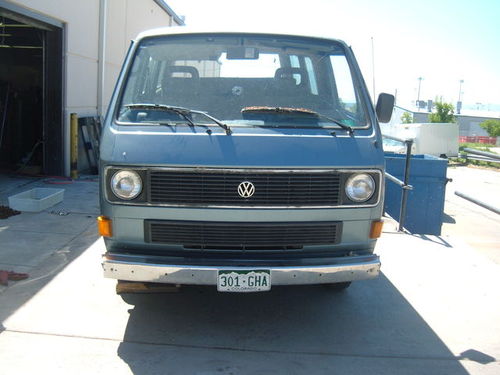
It’s actually fairly straight, just the doors are messed up but nothing beyond my body work abilities. It’s actually just practice for the Black Corrado to redo the maaco body work 😐
Obtaining the Subaru engine:
So instead of purchasing an engine and finding the other bits I had a chance at the whole enchilada so I decided to go for it. In a “Craigslist deal of the century” I traded a nice turbocharger I had for the entire car, very lucky. The car had a “Bad ECU” which actually turned out to be the fuel pump. The night that the car came home I actually got to hear it run so that was nice. The car has 130,000 miles on it so its a great start:
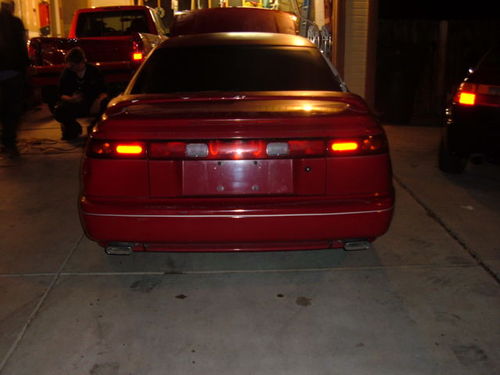
Honestly I didn’t think the engine was all that big in this car, granted the car is large in size in itself, but with Subaru they always seem crammed in there.
Completely assembled the engine is colossal which in some strange way celebrated the major milestone of this project, locating a power plant. Total cost for the car was $30 because the turbocharger was originally given to me I just had to pay for the tow, actually I traded the interior for another identical turbocharger and sold some of the rest for around $100 bucks, so I made money on the deal..
Now that I had a great foundation for a solid project it was time to get down to business. I was un-sure of the road ahead on this project but I knew that it was going to be fun and a challenge. Click on the buttons for up-to-date information on the build.





